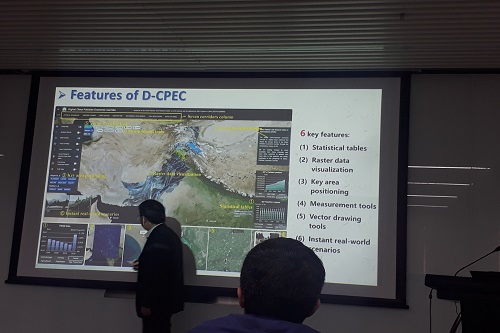A talk by Dr. Zhi Hui (ISTIC, Beijing) focused on advancing open science practices and effective management of research data on 23 Sep. 2025 at XiongAn China
During my 2-Weeks training at XiongAn, I attended a talk by Dr. Zhi Hui (ISTIC, Beijing) focused on advancing open science practices and effective management of research data. Here are some interesting points from the session.

This final lecture discussed the open science and research data management. Open science encompasses all disciplines and promotes open access (OA) to publications, research data, and outputs as a driver of scientific transformation. Since the Budapest initiative (2002) and subsequent developments in Gold OA, Green OA, and platforms like DOAJ, global adoption has accelerated. Countries such as France aim for 100% open science by 2030, while APC (Article Processing Charges) remain a challenge despite OA's growing acceptance. Open research data is recognized as vital for scientific progress, enabling efficiency, transparency, quality, and cross-disciplinary collaboration. Data-intensive research is increasingly strategic, supported by frameworks in the EU, U.S., and China.
China began structured efforts as early as 1984, with initiatives such as the National Scientific Data Sharing Project and the creation of 20 national data centers under long-term S&T plans. ISTIC contributes through projects like SinoXiv, Research Data Hub, Science Conferences, and CRID. While open access advances, challenges persist in cost management (APCs), research data governance, data storage, lifecycle management, and access control, especially with emerging issues like AI-generated content (AIGC). Overall, open science and research data management are seen as essential to global scientific collaboration, innovation, and sustainable knowledge sharing.
Context:A two weeks training titled "International Training Program on Policies and Applications of Government Data Governance in Belt and Road (B&D) Countries" (14-28 September, 2025) was held at XiongAn New Area, China. The training was hosted by the Department of International Cooperation of the Ministry of Science and Technology, organized by Institute of Scientific and Technical Information of China (ISTIC) and co-organized by UNESCO-IFAP China National Committee, UNESCO IFAP Information for Development Working Group (IDWG) and XiongAn Group Digital City Company.
The training included 14 participants from eight countries-China, Pakistan, Sri Lanka, Brazil, Kazakhstan, Zambia, Iran, and Indonesia-representing a wide range of expertise, including public administration, computer science, international relations, environmental science, data governance, industrial management, information science, and international communication.



